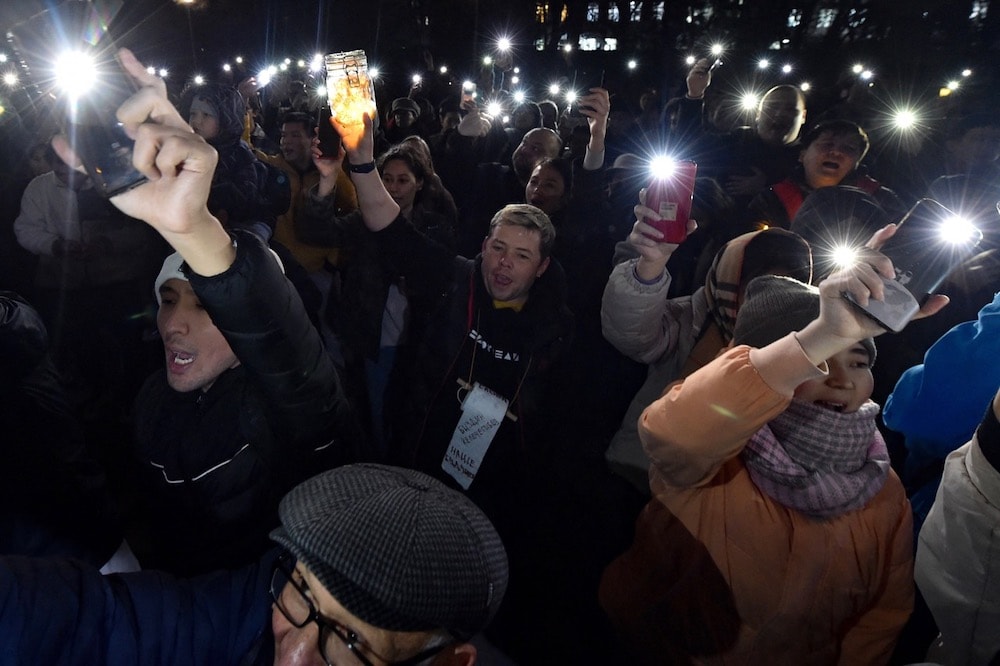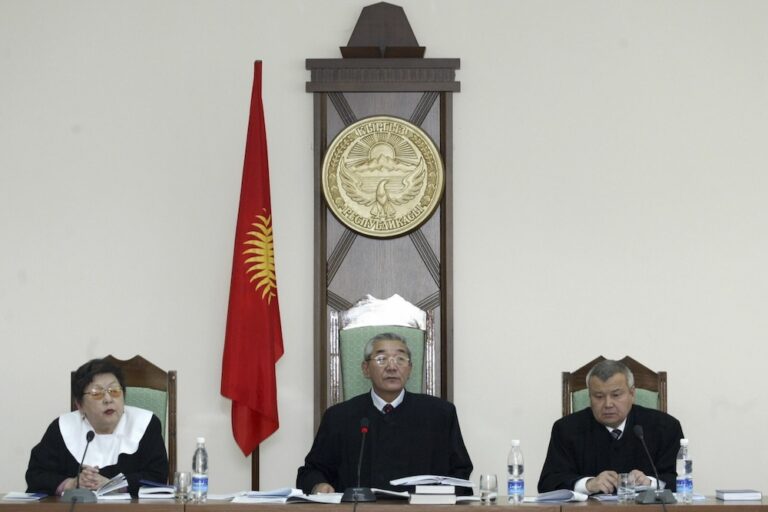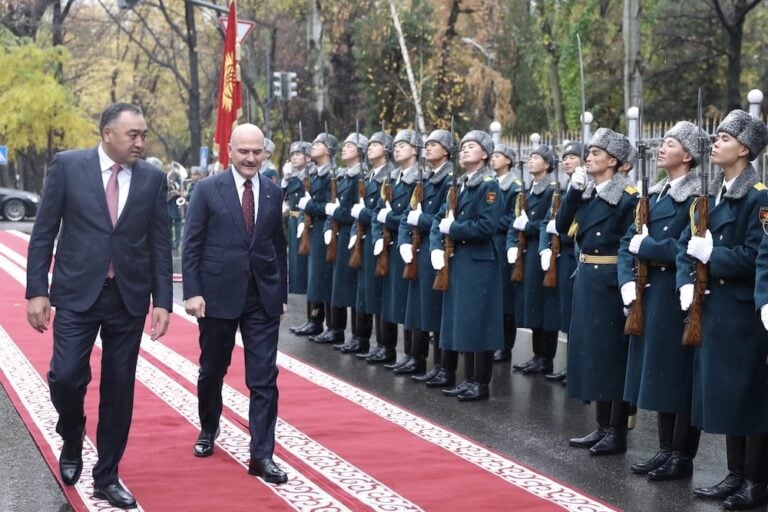The President of the Kyrgyz Republic is urged to return the draft law to the Jogorku Kenesh (Supreme Council) for thorough revision, with the participation of experts in the field, and an analysis of international legal provisions.
On June 22, 2023, the Jogorku Kenesh of the Kyrgyz Republic adopted the draft law of the Kyrgyz Republic “On Amendments to Certain Legislative Acts of the Kyrgyz Republic (to the Code of the Kyrgyz Republic On Offences and the Laws of the Kyrgyz Republic “On Measures to Prevent Harm to the Health of Children, Their Physical, Intellectual, Mental, Spiritual and Moral Development in the Kyrgyz Republic”, “On the Mass Media”). We believe that this draft law is another administrative lever for imposing censorship and arbitrary restriction of citizens’ access to information, and the stated goal of creating a safe information environment for children, as declared by the initiators, is just populism and imitation of teeming activity.
We draw the public’s attention to the fact that the draft law was adopted by the deputies hastily, without holding proper parliamentary hearings and in violation of rules for the adoption of draft laws formalized in legislation, and the content of the draft law itself does not meet the requirements for accuracy and clarity of the meaning of regulatory prescriptions.
In view of this, the draft law should be returned by the President of the Kyrgyz Republic S.N. Zhaparov to the Jogorku Kenesh of the Kyrgyz Republic for thorough revision, with the participation of experts in this field, analysis of international legal provisions, international practice, taking into account the need for parliamentary hearings, compliance with the statutory procedures for adopting laws.
The draft law was adopted by the deputies hastily, without proper parliamentary hearings
According to the Law of the Kyrgyz Republic “On the Regulations of the Jogorku Kenesh of the Kyrgyz Republic”, which defines the general requirements for the consideration of draft laws, the time interval between each reading of a draft law cannot be less than 10 and no more than 30 business days (Article 53 of the Law). The draft law of deputy Jamilya Isaeva, registered in the Jogorku Kenesh of the Kyrgyz Republic on 19 May 2023, was adopted in its first reading on June 7, 2023. On June 21, 2023, the Jogorku Kenesh of the Kyrgyz Republic adopted the draft law in the second and third readings simultaneously. Thus, the Parliament did not observe the time interval between the second and third readings, which cannot be less than 10 business days.
The law provides for exceptions when the Jogorku Kenesh of the Kyrgyz Republic may adopt a draft law in the second and third readings simultaneously or in three readings at once, but only if the responsible and relevant committees approve it. At the same time, exceptions apply only to draft laws aimed at stabilizing the socio-economic situation, law enforcement and security issues in connection with the introduction of a state of emergency and (or) Force Majeure circumstances; to bring the law provisions in line with the Constitution of the Kyrgyz Republic; to bring the current law in line with the newly adopted law; to make editorial changes; to eliminate inconsistencies between the texts of law in the state and the official languages; to consider the draft laws on the ratification of international treaties, excluding loan agreements and others. However, the draft law considered by deputy Jamilya Isaeva does not fall under the above list.
It should be noted that the author of the draft, Jamilya Isaeva, merely quoted the provisions of the Constitution of the Kyrgyz Republic in the explanatory note containing wording on the spiritual and moral development of children, but did not cite specific provisions from the laws of the Kyrgyz Republic “On Measures to Prevent Harm to the Health of Children, Their Physical, Intellectual, Mental, Spiritual and Moral Development in the Kyrgyz Republic” and “On the Mass Media”, which contradict the Constitution of the Kyrgyz Republic and which must be brought in line with the basic law of the country. Accordingly, by adopting the law hastily, the deputies violated the provisions regulating procedural issues of the Law of the Kyrgyz Republic “On the Regulations of the Jogorku Kenesh of the Kyrgyz Republic”.
In adopting the said draft law, the Parliament made another gross violation – parliamentary hearings on the draft law were not organized and held, as required by Article 115 of the Law of the Kyrgyz Republic “On the Regulations of the Jogorku Kenesh of the Kyrgyz Republic”. Parliamentary hearings on draft laws for ensuring constitutional rights, freedoms and duties of citizens, the legal status of political parties, non-profit organizations and the Mass Media, on the budget, taxes and other mandatory fees, on the introduction of new types of state regulation of business activities, on ensuring environmental safety and combating crime are mandatory. Parliamentary parties, deputy groups, committees and commissions, after approving the topic of the parliamentary hearings, time and venue, should post information on the official website of the Jogorku Kenesh and inform the Mass Media to that extent no later than 5 days before the parliamentary hearings. However, in violation of the established requirements of the Law of the Kyrgyz Republic “On the Regulations of the Jogorku Kenesh of the Kyrgyz Republic”, without observing the deadlines for consideration and adoption of draft laws, in the absence of any urgent need and by failing to ensure a parliamentary hearing on June 22, 2023, the Jogorku Kenesh of the Kyrgyz Republic adopted the draft law in its second and third readings simultaneously. Moreover, on June 22, 2023, the deputies made amendments even during the discussion and adoption of the draft law in the second and third readings simultaneously.
References to foreign experience and cooperation with Meta are incorrect and misleading
The explanatory note states that the international experience of countries such as the United Kingdom, Germany, the United States, Canada, China, Iran, Georgia, Ukraine, Latvia, Lithuania, Russia and Kazakhstan testifies to the success of the measures taken in implementing state policy to protect children from information harmful to their health or development. However, it is not clear what the author of the draft law considers to be a successful experience, as the explanatory note does not provide examples of effective regulations, nor does it indicate how, exactly, the protection of children from harmful information is regulated. We would like to point out that a regulation to improve online safety for children in the UK has been under discussion since 2018, but so far no law has been passed. As for the US, almost all online speech is legal under Section 230 of the Communications Decency Act (1996), often referred to as CDA 230 and subsequent precedent law. It is worth noting that the issue of keeping children safe on the Internet is indeed an issue that many governments are debating, and much of the debate is about the regulation of online platforms. However, there is consensus that when removing content, social networking sites should consider not only their own community communication policies and national laws but, primarily, international human rights standards.
In this regard, it seems that representatives of the Ministry of Digital Development of the Kyrgyz Republic either misunderstand or deceive when making statements that “some representatives of government agencies (five people who are proficient in English) will receive the right from Meta to block certain social network pages” [1] because Facebook reviews all requests to remove content in accordance with the unified principles for all countries and decisions are made independently of the governments. Meta emphasized this point in 2021 in response to the Kazakh government’s statement on the so-called “Joint Statement of the Ministry of Information and Public Development of the Republic of Kazakhstan and Facebook”. [2]
It seems that our state bodies were doing some wishful thinking when they declared at the Jogorku Kenesh meeting that they would receive the right from Meta to block certain pages of the social network. [3]
The content of the draft law does not meet the requirements of accuracy and clarity of the meaning of regulatory provisions
On April 17, 2023, the PF “Media Policy Institute” submitted its proposals and comments to the draft law. More details on the organization’s proposals can be found here. The main complaint against the draft law is that its broad wording (banning information “inciting children”, “capable of causing”, “justifying or excusing the acceptance of violence”, “denying family values”) on the one hand threatens freedom of speech and access to information, as such wording may lead to abuse by officials to restrict the activities of the Mass Media that publish socially significant reports, and on the other hand, the draft law does not make the Internet a safer place.
In the explanatory note on the necessity to adopt the draft Law, the author refers to Article 19 of the Convention on the Child’s Rights, which provides that the States Parties shall take social, legislative and administrative measures to ensure the protection of minors against bodily and sexual violence, against abuse, neglect or illegal exploitation by guardians, parents or others who have assumed responsibility for their upbringing. But the provision is more concerned with protecting children from physical abuse and indicates the need to take measures, including laws, against child abuse. The draft law provides protection from a wide range of information. In the KG segment of the Internet, children mainly use social networks and messengers, among which the most popular social networks are: TikTok; YouTube; Instagram, and the most popular messengers are WhatsApp; Telegram; Discord. However, since representatives of the Ministry of Digital Development of the Kyrgyz Republic cannot regulate content on social networks, making local websites and Internet bloggers, who already follow national legislation, responsible will not solve the problem of children’s safety, as this draft law will not affect children’s independent access to the World Wide Web in any way.
The decision about what content should be banned, given the broad interpretations of what is prohibited, will be taken by the designated authority in an arbitrary way and on a case-by-case basis. Ultimately, this puts all websites in very hard situation: without clear guidance on what content is likely to cause harm to children, they will censor any discussion relating to children. For example, criticism of any ridiculous and absurd statements made by the deputies about minors, clarification on what constitutes gender-based violence victim blaming [4], could be deemed by the authorized agency as the information “denying family values”.
As a result, the draft law would make websites fully liable for the content they show to minors, as the liability would be based on vague requirements and bans. As such, for example, fearing liability under the draft law, the Mass Media would likely preemptively exclude any discussion about topics such as, for example, talking about eating disorders (anorexia or overeating) or depression. On the other hand, the law will not solve the problem of cyberbullying or pornography on social networks, and given that the vast majority of children in Kyrgyzstan by the age of 11 have their own mobile phone or tablet, or both at once [5], with access to any information, including that harmful to health, can often be provided by parents themselves, this draft law would not solve its most important task – the safety of children on the Internet – but could lead to loss of access to information which is not dangerous. Since the proposed draft law does not present classification and labelling of information products by age category, it means that the draft law equates in perception of information of conditionally 7-year-old child and 16-year-old child, unreasonably grouping all minors into one category. In addition, this restriction will also affect adults, who are likely to face barriers to accessing legal content on the Internet as a result of adopting the draft law.
Certainly, the safety of children on the Internet is a real challenge, but this draft law attempts to reduce it to a single solution by imposing disproportionate restrictions and bans on the Mass Media, information and telecommunications network operators, including the Internet, bloggers and ordinary users of social media when distributing print and audiovisual information that is harmful to the health or development of children.
We agree that it is necessary to protect children from harmful information, but the adopted draft law is aimed not at the safety for children but at censorship for adults!
In view of the above, we call on all concerned to appeal to the President of the Kyrgyz Republic, S.N. Zhaparov, to exercise the right of objection to the adopted laws and return the law to the Jogorku Kenesh of the Kyrgyz Republic for parliamentary hearings in accordance with the law and the subsequent amendment of the draft law with the participation of the Mas Media sector experts.
Best regards,
Director of PF “Media Policy Institute”
B. Usenova
[1] https://24.kg/vlast/267376_mintsifryi_budet_sotrudnichat_sMeta_chtobyi_blokirovat_kontent_vsotssetyah/
[2] https://kloop.kg/blog/2021/12/28/kazakhstan-facebook-and-content-what-s-going-on-and-is-it-censorship/
[3] https://24.kg/vlast/267376_mintsifryi_budet_sotrudnichat_sMeta_chtobyi_blokirovat_kontent_vsotssetyah/
[4] ttps://kaktus.media/doc/478287_ona_sama_vinovata._kak_mvd_i_depytaty_vozlagaut_na_jertv_otvetstvennost_za_nasilie.html
[5] “Children and Media Consumption in Kyrgyzstan” survey data for Kyrgyzstan of 2021-2022



